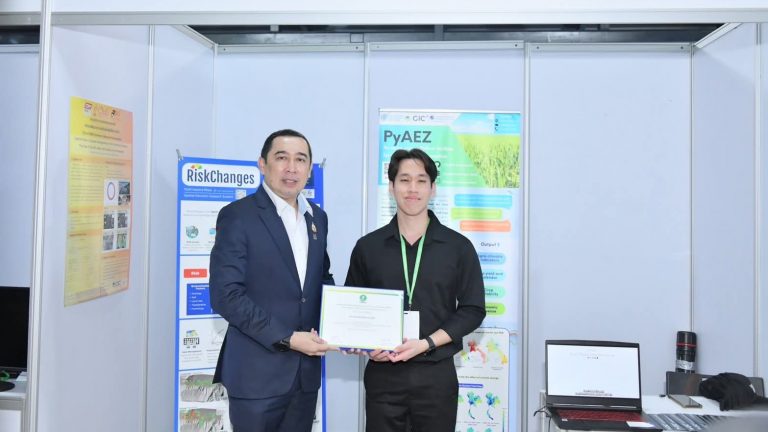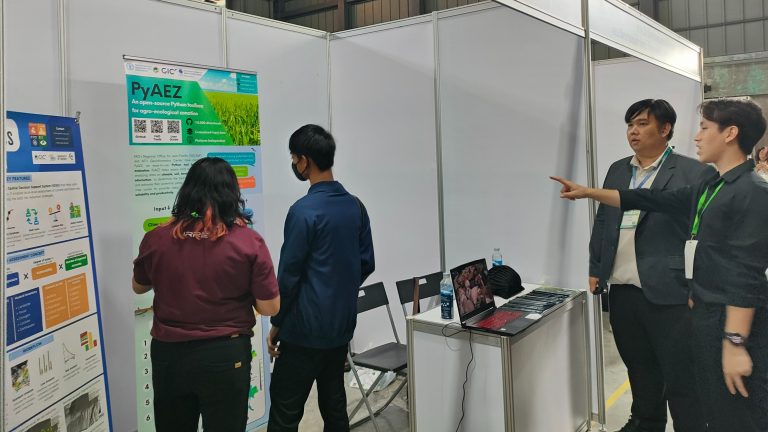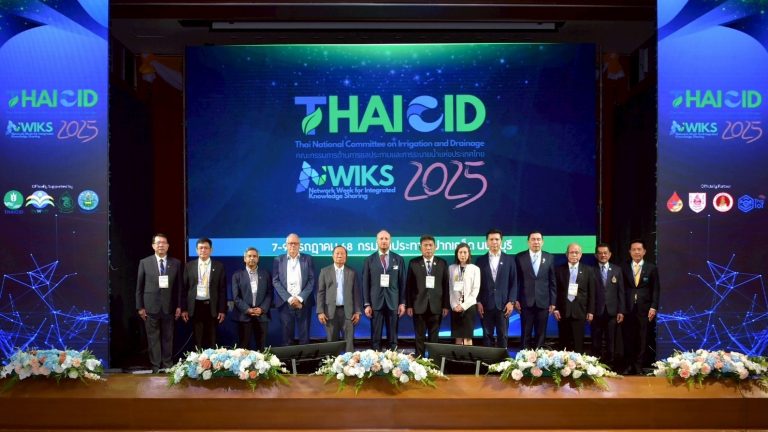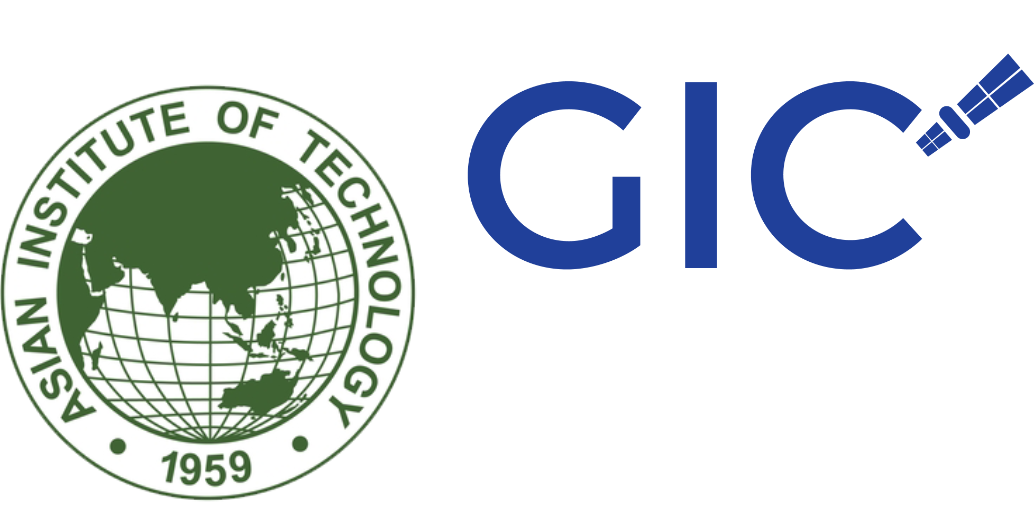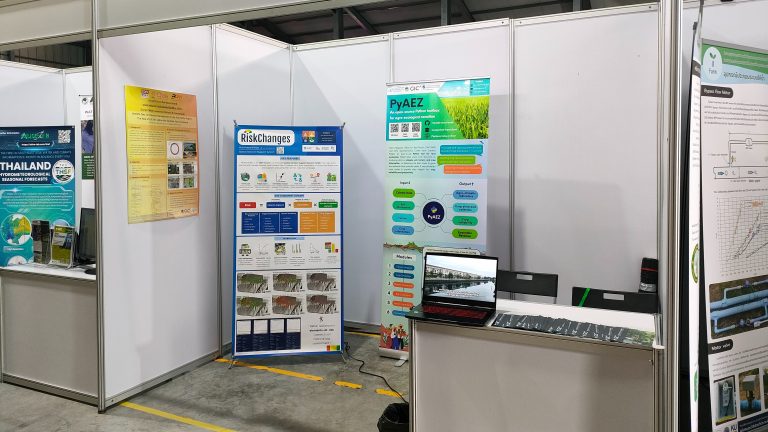
Overview
The THAICID Network Week for Integrated Knowledge Sharing 2025 (THAICID-NWIKS 2025) was held from 7 to 9 July 2025, at the Chuchart Kampoo Auditorium and the 80th Anniversary Building, College of Irrigation Engineering, Irrigation Development Institute, Royal Irrigation Department, Pak Kret District, Nonthaburi Province, Thailand. This event was organized by the Thai National Committee on Irrigation and Drainage (THAICID) in collaboration with the Royal Irrigation Department, the Irrigation Engineering Alumni Association under Royal Patronage, the Thai IoT Association, the Engineering Institute of Thailand, the Council of Engineers Thailand, the Thai Hydrologists Association, and more than 25 other academic and professional partners.
The aim of this event was to create an integrated platform for knowledge exchange on irrigation, water resources management, and climate change adaptation. The theme was “Is Thailand ready to cope with the long-term and severe impacts of global climate change?”. The exhibition featured diverse activities including the 18th THAICID National Symposium, academic seminars, expert panel discussions, and the special Dongtan Software Days 2025, showcasing cutting-edge digital technologies and smart tools for water management.
Role of GIC
GIC had a booth under the Royal Irrigation Department’s (RID) Research and Development Unit, showcasing PyAEZ, a software solution developed by GIC with support from the FAO and IIASA for agro-ecological zonation and RiskChanges. The booth highlighted the key features of PyAEZ, its components, and provided examples of how the tool could flexibly assess the effect of climate change on the agricultural sector and land-use.
Also, RiskChanges, an open source, multihazard risk assessment platform developed by GIC with support from the Faculty of ITC, University of Twente, Netherlands and Youth Innovation Lab was exhibited. The event provided a platform to promote our work in the field of disaster management and agriculture among government, academia, private sector and general public.
